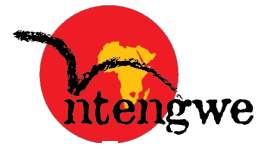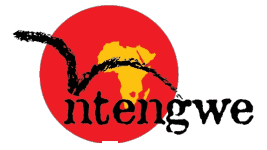Building Resilient Economies in Post-COVID-19 in Matabeleland North
We draw on the work that strengthens the leadership and organizing capacity of community-based women networks at local, national and regional level to transform the structures that perpetuate inequality and violence. Our COVID-19 recovery programs increase the productive potential of women smallholder farmers, helps women expand income opportunities by tapping into high-value markets, and enhances women’s leadership and participation in rural institutions and in shaping laws.
Living and working in areas of poverty and marginalized from decision-making processes, women have been addressing water and sanitation issues, upgrading infrastructure, and seeking sustainable energy source because conditions of the built environment directly affect their ability to improve their lives and their families. Similarly, in rural areas, grassroots women have been developing seed banks, rotating crops and organizing to build a collective asset base. These resilience practices are now spreading across neighbourhoods and communities.
Building back fairer after COVID-19
 As we embark on developing policy, plan and program for sustainable and resilience recovery from the pandemic, we ensure inclusive participatory processes – listen and take note of the vision from women on the ground, organized grassroots groups and local government. Community leaders come together to examine the policy frameworks mandating integrated locally managed disaster risk reduction approaches.
As we embark on developing policy, plan and program for sustainable and resilience recovery from the pandemic, we ensure inclusive participatory processes – listen and take note of the vision from women on the ground, organized grassroots groups and local government. Community leaders come together to examine the policy frameworks mandating integrated locally managed disaster risk reduction approaches.
Grassroots women leaders, riveted by policy information previously unavailable to them, now use their discussions to pin-point the knowledge, skills and constituencies they could pledge to assist governments in responding to and reducing the risk and impact of disasters.
In the spirit of mainstreaming their involvement in disaster reduction work, grassroots participants are now calling for development and mitigation programs and investments to:
- Strengthen indigenous knowledge and practices – community banks, indigenous seed banks, soil conservation, rainwater harvesting and reading nature’s early warning signals – that have been critical to the survival of at-risk communities.
- Effecting Risk Informed development that addressed the risks and builds the resilience of most at risk communities
- Grassroots led training programs that allow advanced women’s groups to transfer their skills and knowledge.
- Directly resource grassroots women’s networks to undertake community research, surveys, and risk mapping to identify and prioritize risks and create resource directories to assist them to collaborate with key actors to reduce risk in their communities.
- Create community and culturally accessible communication systems – such as community radio networks – that reach out to rural and indigenous groups in indigenous languages.
COVID – 19 Vaccines Advocacy
 Zimbabwe became one of the first African countries to receive the COVID-19 vaccine. As the rest of Africa prepared to receive COVID-19 vaccines, Zimbabwe had set up national-level coordination committees for developing national vaccination deployment plans. While the main focus of these committees has been on setting up strategies that facilitate the swift distribution of COVID-19 vaccines once they were available, the role of public awareness in the most marginalized rural communities was ignored.
Zimbabwe became one of the first African countries to receive the COVID-19 vaccine. As the rest of Africa prepared to receive COVID-19 vaccines, Zimbabwe had set up national-level coordination committees for developing national vaccination deployment plans. While the main focus of these committees has been on setting up strategies that facilitate the swift distribution of COVID-19 vaccines once they were available, the role of public awareness in the most marginalized rural communities was ignored.
With the support from Christian Aid Zimbabwe, we facilitate COVID-19 Vaccines Advocacy targeting marginalized groups (women, people with disabilities and the rural populations) to address accurate vaccine information, dispel misinformation and fight Vaccine hesitancy.
We are calling for Vaccine Access and Equality for All
Access to vaccination for all is part of the 2030 Agenda for Sustainable Development and Immunization Agenda 2030.3. Ensuring healthy lives and promoting well-being at all ages was acknowledged as essential to sustainable development. Leaving no one behind as the overarching principle, Sustainable Development Goal 3 aims at achieving universal health coverage, including access to quality essential healthcare services and access to safe, effective, quality, and affordable essential medicines and vaccines for all. In light of Goal 3, we:
- sensitise stakeholders of the COVID-19 Vaccines’ advocacy project in Zimbabwe;
- generate project support and endorsement by stakeholders;
- sensitize Community leaders on the upcoming COVID-19 booster vaccination exercise;
- increase community awareness and knowledge on COVID-19 vaccines;
- engage the opinion leaders and influencers to encourage uptake of COVID-19 vaccines;
- influence behaviour-change towards the prevention of the spread of the disease by targeting key players in the community.
 My name is, Thandiwe Sibanda, and I am a Village Health Worker and was appointed by my community in Nhemanthanga, Village 2 to assist in COVID-19 vaccination advocacy and minor ailments. When someone is sick with corona, I recommend a healthy diet and I feel very encouraged to cascade information on the importance of vaccination.
My name is, Thandiwe Sibanda, and I am a Village Health Worker and was appointed by my community in Nhemanthanga, Village 2 to assist in COVID-19 vaccination advocacy and minor ailments. When someone is sick with corona, I recommend a healthy diet and I feel very encouraged to cascade information on the importance of vaccination.
Ntengwe’s response to coronavirus
 We are responding in the districts where we work in one form or another. Our teams are coordinating and working with government stakeholders and community networks by equipping our communities with locally-relevant, contextualized messages to help prevent the spread of the disease.
We are responding in the districts where we work in one form or another. Our teams are coordinating and working with government stakeholders and community networks by equipping our communities with locally-relevant, contextualized messages to help prevent the spread of the disease.
In addition to education, we provide our communities with hygiene services, supplies and equipment to ensure good hygiene and infection control in schools, clinics and shopping centres. We support community health workers with personal protective equipment (PPE).
As with any emergency, children are often disproportionately impacted, especially by the secondary effects. Our response is helping children impacted by COVID-19 through education, child protection and link vulnerable households to government social safety net programs.
Our teams are influencing policies to ensure children and women are protected from violence during COVID-19, taking local solutions to scale, and engaging with children, their families, communities and government stakeholders accountable to reach the most vulnerable children and women with humanitarian assistance.
We are creating farsighted, equitable opportunities for women and girls
 Due to COVID-19, more women, their families and communities will live in in poverty. The pandemic led to a profoundly – inequitable combination of declining paid work in informal jobs – with increased caring burdens and limited childcare on women.
Due to COVID-19, more women, their families and communities will live in in poverty. The pandemic led to a profoundly – inequitable combination of declining paid work in informal jobs – with increased caring burdens and limited childcare on women.
Particularly vulnerable groups, women and children with disabilities are most affected and are at greater risk of lost livelihoods.
We are already helping to promote COVID-19 recovery and are creating new narratives for a “new normal”, supporting gender-responsive, age sensitive social protection that help cushion the pandemic’s impacts.
We are promoting food security, WASH, combating violence against women, and measures to tackle deep-seated social and economic inequalities.
We have it in our power to save the most vulnerable, poorest and greatest-at-risk populations. We need you to help us make a difference before it’s too late.

